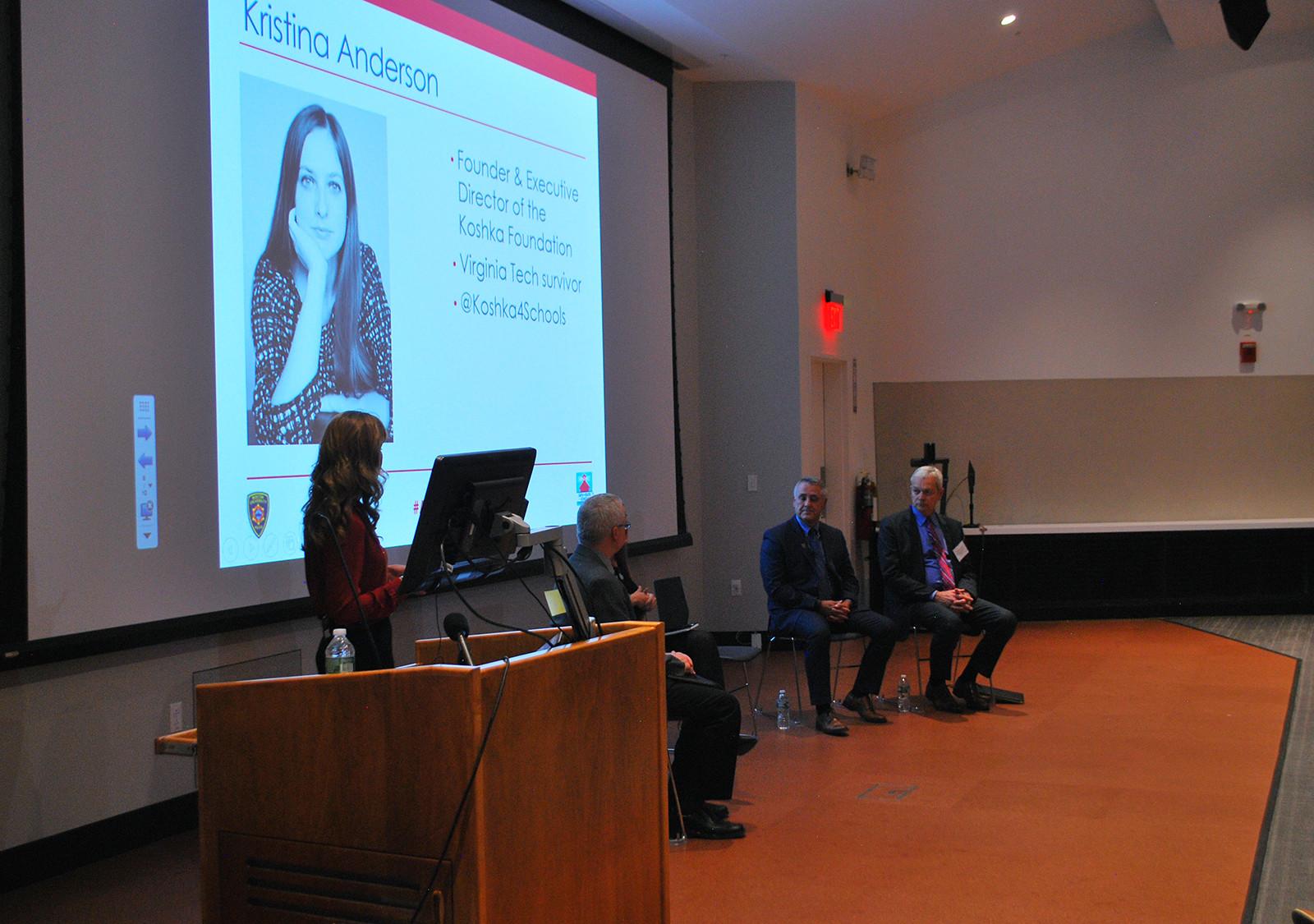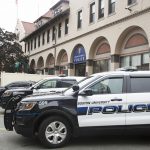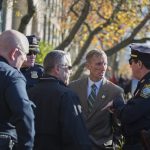
With increasing focus put on campus safety, Boston University students and faculty should take proactive action against violence, a group of panelists advised attendees at the “From Tragedy to a Safer Tomorrow” panel Thursday night.
BU and the Boston University Police Department, in partnership with Safe and Sound Schools, hosted the free panel in BU School of Law’s Law Auditorium. Approximately 50 BU community members and local residents gathered to listen to the panel of five experts, moderated by Meghna Chakrabarti of WBUR, discuss how to better prepare students to help them lead safer lives.
“Police cannot do it all by ourselves, we need students to really help,” said panelist Scott Pare, deputy director of public safety at BUPD. “If you see something, say something, do something.”
Pare said the key to creating a safer campus at an urban university such as BU is communication, because words can often be misinterpreted.
“A lot of times the misinformation comes from students,” he said. “[Students should] wait for [information] from an official source, watch safety [alerts] and check BUPD’s Twitter account.”
Michele Gay, founder and executive director of Safe and Sound Schools, said school safety is everyone’s business and that communities should take ownership of their own safety. Gay’s daughter was a victim of the Sandy Hook Elementary School shooting in December 2012.
“School safety is far too great a responsibility to fall into a shoulder of one individual or one involved community … the greater our network, the greater our team, the better educated we can be, the safer we all going to be.”
Another crucial aspect to campus safety is creating a healthy relationship between law enforcement and students, said Mo Canady, the executive director of the National Association of School Resource Officers. NASRO has been training campus law enforcement departments since 1953.
“When we train officers, the number one goal is to bring together the gap between law enforcements and the community,” Canady said. “What we were looking for were officers that have desirable views, that have experienced views towards the community [and] have right motivations.”
A question-and-answer session followed the panel discussion, where the panelists answered questions submitted by Twitter users with the hashtag #ASaferTomorrow. Questions spanned from the topics of Greek life to gun control and mental health.
Twitter user Kevin Quinn, @klah316, asked the panel’s opinion on arming school staff members.
Panelist Andre Ravenelle, superintendent of Fitchburg Public Schools, said he personally does not think it is necessary.
“There are a lot of other things we can do with safety, my concern is now we are responsible with who and how we are training … it’s a small snow ball, once you break it down, there is no way you can know if you will be able to stop all kinds of next steps that are going to happen,” he said.
Several attendees said they now have a new understanding on campus safety.
Olivia Linder, assistant director of admissions at the Massachusetts Institute of Technology and a recent graduate of BU’s School of Education, said she appreciated the diverse voices and positive outlook of the panel.
“[The panel] had a lot of different perspectives, different school levels, which I think is important,” she said. “I like it that it wasn’t fear-based, it wasn’t about everyone being on guard all the time, it was about proactively communicating with the community, which I think is really important. It’s to teach people rather than making them nervous all the time.”
Ali Kennedy, a senior at Wheelock College, said she plans to become a teacher in the future, and said the panel gave her instructions on how to educate the next generation.
“It is good discussion for students in general, just kind of like raising the topic, I felt like after tonight you have a better understanding of how to go out and talk to your peers,” she said. “You’ve got a large panel here that is very educated about the topic … I’m a future educator, and I was here to get more of a teaching perspective about how to go out into my school to make sure my students and myself are safe later on.”




